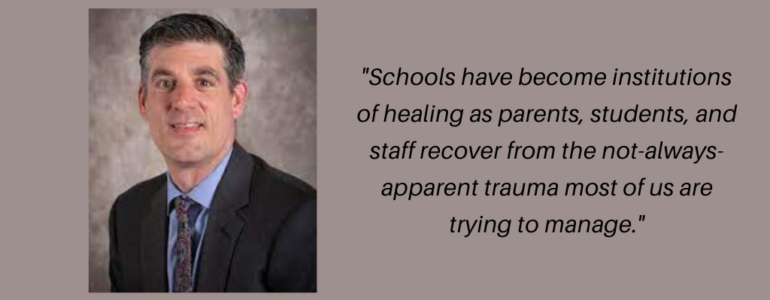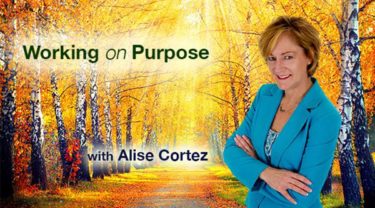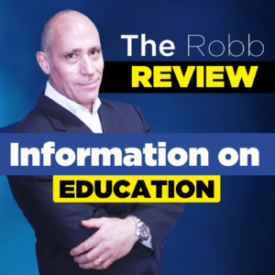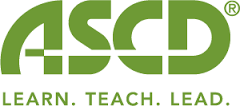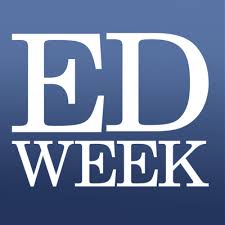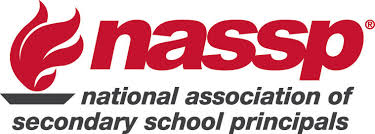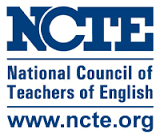By Dr. Kris Felicello
There are certain days when February 2020 seems like it was yesterday, but others where it seems to be a lifetime ago. Looking back is a surreal experience. Effective August 1st, I had been appointed to begin as Superintendent of Schools in North Rockland, a diverse district 35 miles north of Manhattan. I was excited to be attending my first New York State Superintendent’s conference in Albany, NY. I was experiencing feelings of excitement and nerves as my boss Ileana, the Superintendent I was replacing, introduced me to folks, shared insights, encouragement, and often laughed at what was to be her last conference as the North Rockland Superintendent. Almost as an afterthought, she suggested we attend a pop-up session scheduled on the final day of the conference that discussed what at the time seemed like just another worst-case scenario about a potential threat, the Corona-19 virus. Little did I know that in just two short weeks, our schools would be closed for the remainder of the year, and education, politics, health care, entertainment, and culture would never again look the same.
When we first closed, I felt similar to the musicians who refused to stop entertaining passengers as the Titanic sank. The world seemed to be ending, but our team of administrators and clerical staff were busy assembling and copying work packets for students to complete while this Corona issue was worked out. I am sure we all lost a few years off of our lives those days by breathing in the fumes from the Lysol we were incessantly spraying on the packets and throughout the office, or maybe it was just me spraying that stuff. How did I get here? An Assistant Superintendent for Instruction who had, throughout his career, advocated for meaningful, thought-provoking assignments, basically the exact opposite of what we were spending our time doing. I was completely shocked when the lines to receive these packets rivaled those for Cabbage Patch dolls circa 1985. What I didn’t realize at the time was that a shift was happening. In a time of uncertainty, schools were becoming more: more important, more volatile, more controversial, more to blame, more to praise, just more, fair or not.
Long gone are the days of children going off to school, sitting in rows, and listening as intently as possible to the directions of school personnel for fear of parental repercussions. The Pandemic served as an accelerant to what had already been shifting. Schools were and are continuing to become the hub of their communities.
Parents are looking for answers in a desperate time in which one in three female teenagers have had suicidal thoughts and three in five young people have persistent feelings of sadness or hopelessness (as reported by the CDC in February of 2023.)
Schools have become the battleground for a political agenda in which extremists on the left and the right pontificate about their political views via social media platforms with vigor, passion, and bravado due to their anonymity and lack of consequences. Districts and communities are charged with staying united as those with a political agenda aim to divide.
Most importantly, though, schools have become institutions of healing as parents, students, and staff recover from the not-always-apparent trauma most of us are trying to manage.
Schools have changed, and the debates are no longer about which teams are getting the best uniform, who my teacher is, and whether my child is learning and growing as a student and a person. Now district leaders must be ready to debate the merits of the books in our libraries or should we have armed guards. Questions arise about why schools have the audacity to present students with all sides of an issue, particularly ones in which parents are sure they are on the right side of history.
It is scary to think we are living in a world that is all too similar to the ones described in books I read as a middle schooler, such as Fahrenheit 451. The challenge is to provide students with the skills necessary to formulate their own opinions, participate in civil discourse, listen to others, and be open to the possibility that an opinion different from theirs may have merit. Many citizens long for a time when they didn’t know or care who their neighbors voted for. Today, we seem to be heading toward a place in which politics serves as another avenue to foster hate.
These are scary times, but I have hope. The Pandemic has left educators with tools they may not have acquired in such a short time. We are now more efficient and creative than ever before. We have become pros on virtual platforms and have embraced our role as teachers, cheerleaders, mentors, and supporters. We have been forced to examine what is truly a priority in our courses, classes, and grade levels. We now know it is essential that we meet kids where they are at, and more and more of us understand now what Rick Wormelli has been teaching us for years, that what is Fair isn’t Always Equal.
We have a daunting task ahead of us. We must protect what is great about our schools and our Country’s education system without the fear of change. We must be willing to adjust and overhaul. Our schools should no longer be exemplary at developing factory workers. Instead, we need to focus on developing thinkers, problem solvers, and leaders who embrace service. We must protect democracy, civility, and knowledge. It can be overwhelming at times, but as I spoke about while delivering a TEDX talk, “If not us who?”
Recently I have discovered my motivation, my fuel when feeling down, my why as (Simon Sinek says), is working directly with students. Sure, it sounds cliche, but why else get into education but to work with young people? The inconvenient truth is the further you move away from the classroom, the easier it becomes to forget that “why,” to become out of touch and disconnected.
It seems counterintuitive that those with the biggest influence on how young people spend their formative years often have little authentic interactions with those very young people they are responsible for guiding into adulthood. For me, the solution is working directly with kids. It can be by covering classes, reading to students, or leading student groups. Without fail, when I work with kids, my day becomes brighter, and why I chose this field becomes clear. I would encourage all educators to work with students in a more authentic and direct manner. My work with students has been the best professional development since moving to a central office position and now the Superintendent’s seat.
I had only been on the job for a few weeks when two young black women who attended our high school asked to meet with me. These passionate and articulate student leaders were angry, frustrated, and scared. We were in the middle of the shutdown, and despite the computer barrier between us, I could feel their energy and heightened desire to do something about their feelings of frustration around the injustices that the George Floyd murder shined a light on. Out of that initial meeting, the student group “Voice” was born. Nilah and London, as President and Vice President of Voice, developed an application via Google Meet that was distributed to the student body.
The introduction to the application is below:
Voice will be comprised of a diverse group of students in grades 9-12. The purpose of the group will be to provide a venue for students to be heard and to offer suggestions for making our school a better place for ALL students! Dr. Felicello, Nilah, and London Blenman will facilitate monthly meetings that will allow the group to discuss issues such as racial inequity in North Rockland, develop skills on how to make effective change and work together to implement initiatives that will make our school a more inclusive place.
Due December 23rd, 2020
Space is limited, so please submit your application ASAP
Black, Latinx and POC are highly encouraged to join!
After reviewing applications, approximately 20 students were accepted, and the work began! We meet monthly for approximately two hours to learn from each other, grow together, and embrace the beauty and strength of diversity. Ultimately, our goal is to make our school a more accepting, welcoming place for all students, regardless of their background or how they identify.
Voice Mission: We are a group of diverse North Rockland High Schools students who wish to amplify the thoughts and ideas of the student body. Our group hopes to raise awareness by educating those in our school community and the community at large to embrace the diversity of thought, increase empathy and unify the citizens of North Rockland. |
Life as a Superintendent is one in which you rarely have time to catch your breath, so as you can imagine, I rarely have the time to dedicate to VOICE and other student groups. However, I find I care more about the activities I plan with my students than the adult lead sessions I run. I refuse to cancel these meetings or just go through the motions no matter how much I have on my plate, and for good reason. My wife says I seem to be my happiest after working with “my kids” and “light up” when I talk about them. That is certainly true, but what she doesn’t see is how much I learn from them, how much I respect them, and how much they can accomplish when they are empowered.
I truly believe we are moving the needle, raising awareness, and projecting their truth. Young people, like adults, can do great things, have creative ideas, and look at the world more refreshingly than we do as adults.
I am proud of the work we have done, such as our faculty literature awareness initiative (linked here) and District policy and procedure adjustments that were driven by these students as well as the speakers we have brought to our staff and students. I am also excited about the projects we are working on, such as an HBCU-specific college fair, partnering with The Center for Safety and Change, and a High School wellness center for students, to name a few.
While these initiatives are wonderful and something we are all proud of, the relationships I have built with these students and their families, the lessons they have taught this middle-aged white male who grew up in a non-diverse region of upstate New York, and the thought-provoking discussions, sometimes controversial that our work has to lead to, have been life and career changing for me. Thanks to these students, I am a more knowledgeable, empathetic, more in-touch educator who is determined to improve our schools and provide our students with all the experiences and tools they deserve so they can pursue their dreams.
There have been bigger changes to how we do school over the past three years than any time in the past 100 years. We’d do things differently now, and it’s obvious that more adjustments are needed. I suspect the answers we are looking for are right there, an untapped resource that can drive school reform, and that resource is the students we are responsible for.
I encourage all educators who want to improve, who want to make schools better for kids, who want to bring us together instead of driving us apart, to work with kids in a different capacity. Trust them, listen to them, get to know them, and work with them as partners. You may feel like you do not have the time, I would argue that if we are serious about schools becoming the pillars of our communities, beacons of strength and fairness, then our schools should be dedicated to helping students become the best version of themselves, If we are serious about school reform, the time to start is now!
We suggest you check out Kris’s book with Gary Armida, The Teacher and the Admin
![]()

